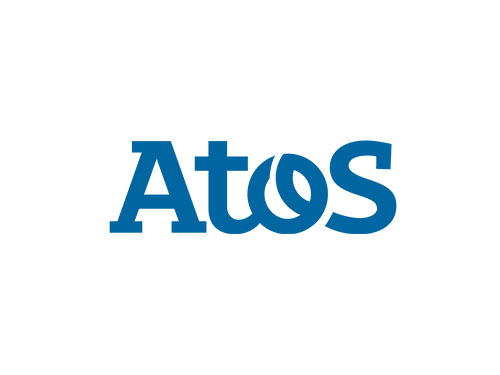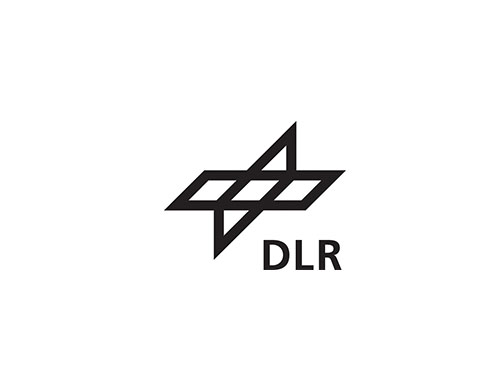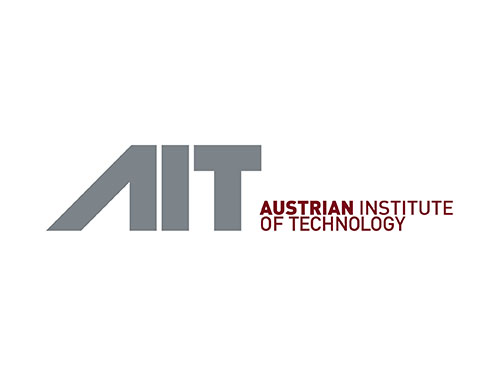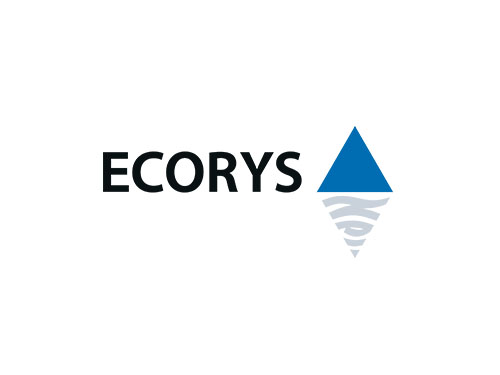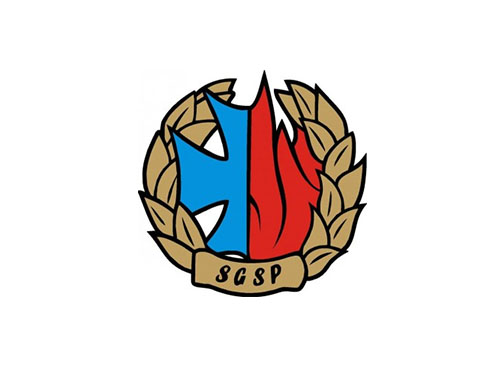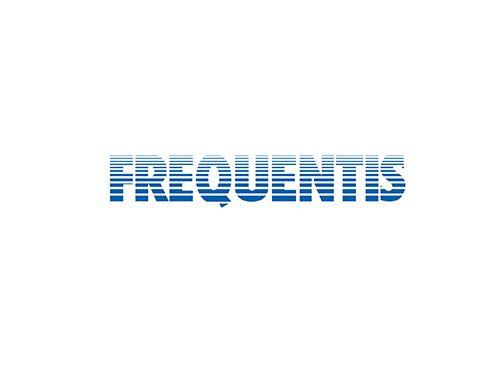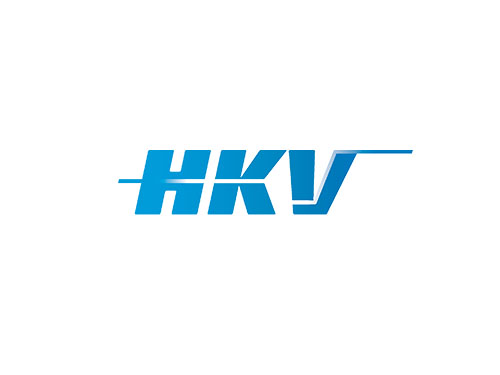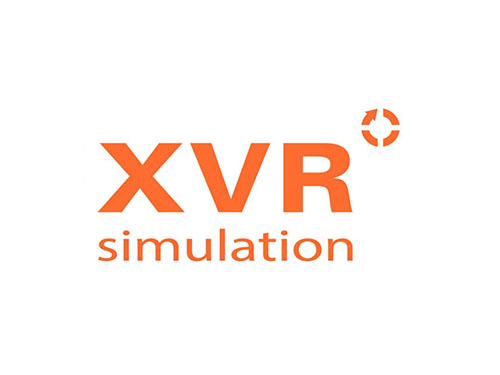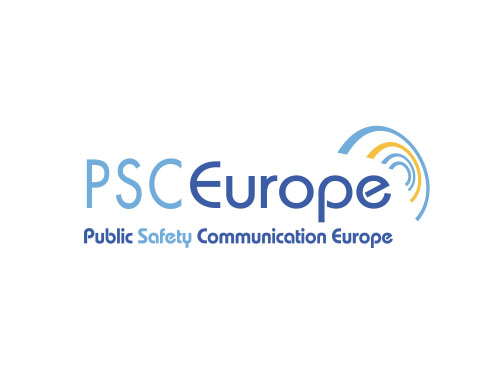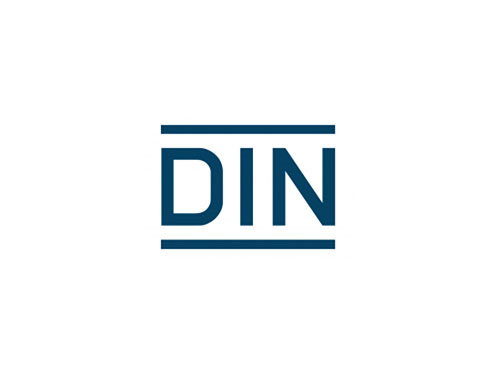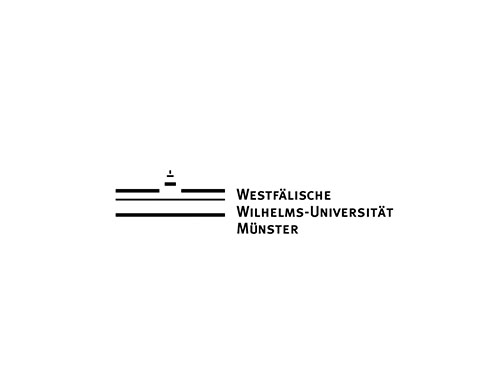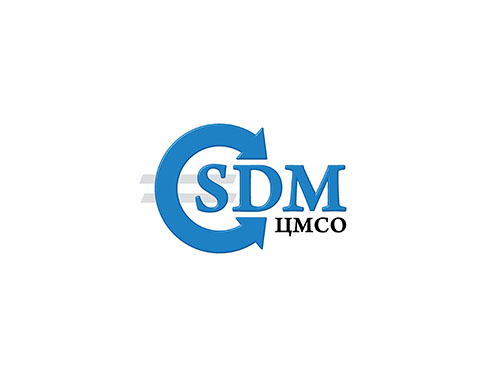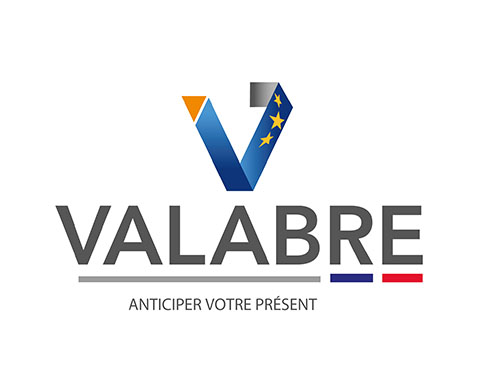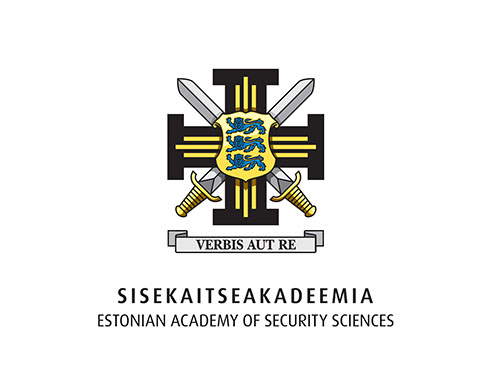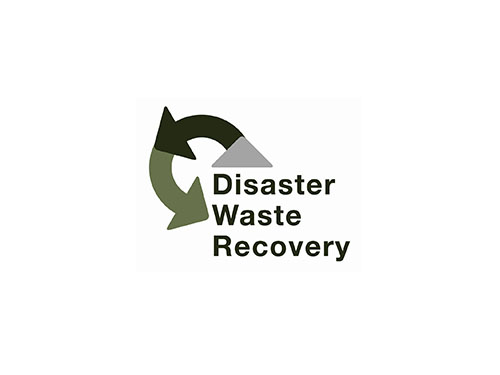who are we?
The DRIVER+ consortium brings together dedicated multi-national practitioners, relief agencies, policy makers, technology suppliers and researchers. Altogether, they represent 14 countries. Since DRIVER+ is following an inclusive approach, more EU Member States and organisations will be invited to join and more individuals will be invited to join the Community of Practice in Crisis Management in the near future.
ATOS
Project Coordinator
Atos SE (Societas Europaea) (Spain) is a leader in digital transformation with circa 100,000 employees in 72 countries and pro forma annual revenue of circa € 12 billion. The Group is the European leader in Big Data, Cybersecurity, Digital Workplace and provides Cloud services, Infrastructure & Data Management, Business & Platform solutions, as well as transactional services through Worldline. With its cutting edge technologies, digital expertise and industry knowledge, the Group supports the digital transformation of its clients across different business sectors: Defense, Financial Services, Health, Manufacturing, Utilities, Public sector, Retail, Telecommunications, and Transportation.
TNO
Technical coordinator and project director
TNO (The Netherlands) is an independent research organisation whose expertise and research make an important contribution to the competitiveness of companies and organisations, to the economy and to the quality of society as a whole. TNO’s unique position is attributable to its versatility and capacity to integrate this knowledge. Innovation with purpose is what TNO stands for. The organisation develops knowledge for practical application, creates new products that make life more pleasant and valuable and help companies innovate. TNO works for a variety of customers: governments, the SME sector, large companies, service providers and non-governmental organisations. Finally, the organisation concentrates on 7 closely related themes, each of which has a prominent place in the national and European innovation agenda (Defence, Safety and Security, Industrial innovation, Healthy living, Energy, Mobility, Built environment, and Information society)
GERMAN AEROSPACE CENTER
Quality Manager
German Aerospace Centre (DLR) (Germany) is the national aeronautics and space research centre of the Federal Republic of Germany. Its extensive research and development work in aeronautics, space, energy, transport and security is integrated into national and international cooperative ventures. In addition to its own research, as Germany’s space agency, DLR has been given responsibility by the federal governement for the planning and implementation of the German space programme. DLR is also the umbrella organisation for the nation’s largest project management agency. DLR has approximately 8000 employees at 20 locations in Germany: Cologne (headquarters), Augsburg, Berlin, Bonn, Braunschweig, Bremen, Bremerhaven, Dresden, Goettingen, Hamburg, Jena, Juelich, Lampoldshausen, Neustretitz, Oberpfaffenhofen, Oldenburg, Stade, Stuttgart, Trauen, and Weilheim. DLR also has offices in Brussels, Paris, Tokyo and Washington D.C. In DRIVER+ DLR’s Institute of Flight Guidance, the Institute of Transportation Systems and Earth Observation Centre (EOC) are involved.
ARTTIC
External Cooperation Manager and Impact, Engagement and Sustainability Lead
Arttic SAS (France) is the leading European group providing consultancy and management services to international technology-related partnerships. ARTTIC provides services related exclusively to the set-up and management of European research and innovation (R&I) collaborations, and has expertise in Security, IT, telecommunications, transport, education, health, bio-technologies, automotive industry, aeronautics, industrial technologies, new materials and microelectronics projects. The company has been successfully managing large-scale R&I projects since 1987, including 100s of international collaborative R&I projects and networks during previous framework programmes. ARTTIC has 100 staff with extensive experience and knowledge in various R&I fields, especially in the ICT and Security domain.
The JOINT RESEARCH CENTER
Test-Bed Lead
The Joint Research Centre (JRC) (Italy) is the scientific and technical arm of the European Commission. It is providing the scientific advice and technical know-how to support a wide range of EU policies. The JRC has seven scientific directorates, located at five different sites in Belgium, Germany, Italy, the Netherlands and Spain. The JRC employs around 2750 staff coming from throughout the EU, and its budget comprises €330 million annually, coming from the EU’s research budget. The Disaster Risk Management (DRM) Unit provides scientific and technical support to EU policies, particularly in the following dimensions: Prevention, Preparedness, Response and Reconstruction.
AUSTRIAN INSTITUTE OF TECHNOLOGY
Portfolio of Solutions Lead
The Austrian Institute of Technology (AIT) (Austria) is Austria’s largest Research and Technology Organisation. As of 2017, AIT employs approximately 1260 people in eight competence centers, spanning a wide variety of topics: Energy, Mobility Systems, Low-Emission Transport, Health & Bio resources, Digital Safety & Security, Vision, Automation & Control and Technology Experience. AIT is strongly engaged in contract research for government and industry in these areas, resulting in a total income of EUR 137,2 Mio from research contracts and funding in 201513. Unlike universities, AIT covers the entire spectrum of applied research: from taking up emerging technologies and implementing first proof of concepts to transferring these emerging technologies into specific applications as well as providing demonstrators and prototyping. Contributions to the DRIVER+ project will come from AIT’s research field of Crisis & Disaster Management14, which brings its decade-long experience in collecting and processing environmental data into crisis and disaster management and provides technological solutions for crisis prevention, interoperable metasystems as well as for volunteer management and community engagement.
Space Research Centre Polish Academy of Sciences
Trials Lead
The Space Research Centre Polish Academy of Sciences (SRC PAS) (Poland) is the only institution in Poland whose activity is devoted to space research, space technology and their applications. SRC is also a leading institution for satellite support of civil protection authorities in Poland. The Crisis Information Centre (Centrum Informacji Kryzysowej – CIK), a division of the SRC Earth Observation Group, provides operational support for Polish crisis management structures and conducts R&D activities based on its insight into user needs in this field. SRC has been involved in crisis management activities since 2005. CIK arose from the close cooperation with civil protection authorities during 2010 flood disaster response activities and tested its ability to serve on an operational basis during the international EU CARPATHEX 2011 exercise dedicated for civil protection authorities and emergency response institutions.
AUSTRIAN RED CROSS RESEARCH
Austrian Red Cross Research GmbH (ARC) (Austria) is a non-profit research organization. As daughter company of the Austrian Red Cross it is guided by the fundamental principles of the Red Cross Movement. Through its national and international research activities, ARC aims to help the most vulnerable in society. Main domains of research are security, disaster preparedness and disaster management as well as ambulance and rescue services and blood programme. Through its mother organization ARC has access to a network of around 57.000 volunteers and 8.300 employees of Austrian Red Cross. Austrian Red Cross is providing the following services to the public – mandated by law – all over Austria: Emergency Medical Services, Ambulance Services, First-Responder Services, Humanitarian disaster relief, Psychosocial Support, First Aid-Training for the population, Paramedic-Training.
DANISH RED CROSS
The Danish Red Cross (DRC) (Denmark) is a member of the International Federation of Red Cross and Red Crescent Societies (IFRC), and hosts the IFRC Reference Centre for Psychosocial Support. DRC follows the strategies of the IFRC and works towards the shared goal of improve the lives of vulnerable people. DRC is deeply rooted in the Danish society and enjoys a vast popular foundation. The Reference Centre for Psychosocial Support (PS Centre) works under the framework of the International Federation of the Red Cross and Red Crescent (IFRC). The PS Centre supports National Red Cross Red Crescent Societies worldwide in promoting and enabling psychosocial well-being of beneficiaries, staff and volunteers.
MAGEN DAVID AOM
Magen David Adom (MDA) (Israel) in Israel is the National Emergency Medical Service (EMS) for the state of Israel, National Blood Service and the National Red Cross Society. MDA has the responsibility to prepare for, respond to and learn from all health related emergencies. As the national EMS and National Red Cross society, is involved in preparing for and responding to various disasters (conflict related, natural and technological), by preparing the protocols, purchase of the equipment, training of staff and volunteers. MDA has vast experience in working with Ben Gurion international airport on its emergency plans, including during the SARS outbreak and the preparedness to the H1N1 pandemic. MDA has invested extensively in the preparedness for a “unusual biological event” and participates in every biannual exercise organized by the Israeli MoH.
european organisation for security
The European Organisation for Security (EOS) (Belgium) was created in 2007 by European private sector providers from all domains of security solutions and services. Its members represents all relevant domains of the economy (ICT, Integrated Border Management, cyber security, crisis management and transport security) across 12 different European countries. Its work and purpose is to provide a platform of collaborative work, insightful exchange of ideas, and best practices between the European Institutions and European security industry, research centers, universities local clusters and associations. EOS’ main objective is the development of a harmonised European security market in line with political, societal and economic needs through the efficient use of budgets. EOS works towards achieving a better level of technology independence for European strategic autonomy, supporting the development and use of European reference solutions and growth of a genuine European industry. EOS supports its Members’ work by providing access to business opportunities and by promoting at the highest level the implementation of innovative solutions in priority areas such as cybersecurity, border control, crisis management and transport security, amongst others.
ThaleS
Thales Communications & Security. S.A (TCS) (France) is a major subsidiary of the Thales Group. Thales is the European technology leader providing safety and security, 40% in transport and aerospace, 60% in Security and Defence. Thales is represented by Thales Communications & Security S.A. (TCS), world leader in critical information system and secure communications and by its ISN sector which develops the Thales offer in global security and intelligence systems. One third party is attached to TCS in the project namely: Thales Services SAS (TS) represented by its ThereSIS Laboratory.
ECORYS
Ecorys (The Netherlands) is one of the oldest and largest economic research and consulting companies in Europe. Ecorys provides a full range of services, from research and policy advice, institution building and capacity development, to programme management and implementation, communication and financing advice, and monitoring and evaluation. In-house expertise covers several knowledge areas including security, transport, finance, economic development, sustainability, evaluation, impact assessment, competition and regulation.
EDISOFT
EDISOFT (Portugal) is a joint venture between Thales, NAV Portugal and Empordef holding, which promotes and delivers innovative solutions that enhance its customer’s critical systems´ security, on land, sea, air, space and cyberspace, through a technical team of excellence. Having its HQ located in Lisbon, and operating a spatial Ground Station in Santa Maria Island, Azores, EDISOFT is focused on providing to the Portuguese entities with responsibilities in the Aeronautics, Space, Security and Defence permanent access to the most advanced solutions, both in times of conflict, as during peacetime. From integration of Naval & ISR world class systems, to the supply of Maritime Security and highly critical Space services, EDISOFT delivers state of the art ATM, C2 and real-time Space software to some of the most demanding customers worldwide.
The MAIN SCHOOL OF FIRE SERVICES
The Main School of Fire Service (SGSP) (Poland) is a state services national technical university supervised by the Minister of Interior and Administration with almost 100 years of history. It consists of two faculties: Civil Safety Engineering (incl. topics: crises and risk management, civil protection, civil emergency planning and coordination, internal security, CBRN, CIMIC, rescue and logistic, etc.) and Fire Safety Engineering (incl. topics: fire engineering, fire and rescue operations, command and control, incident commanding, etc.). On base of this faculties SGSP educates crises and risk managers, security experts, fire engineers, environment protection experts as well as fire officers on Bachelor/Engineer, Master and PhD level. SGSP is the only university in Poland which is appointed to graduate fire officers. Besides being an university, SGSP is also an operational unit of the State Fire Service which runs its own professional fire station and forms national rescue reserves ready to be deployed country wide by General Director for Civil Protection in case of a major disaster. The university runs more than 20 different laboratories (incl. CBRNE, haz-mat, decision making support, etc.), more than 100 scientific and didactic staff and more than 2000 students.
FREQUENTIS
Frequentis AG (Austria) has been active for 60 years in the development and delivery of control centre solutions for safety critical applications in particular Air Traffic Management (ATM) and Public Safety and Transport (PST). The activities cover self-financed R&D and marketing of systems and products for this specific market.
HKV
HKV (The Netherlands) is an independent company (SME) that provides consultancy services and research in water and safety. They build their services on a profound understanding of physics, mathematics and decision making processes. HKV earned a leading reputation in consultancy and research in flood risk management by taking the initiative in the development and implementation of many innovative concepts that found their way into Dutch risk management practice. Such developments are supported by our own extensive R&D program and through collaboration with universities and research institutes.
ITTI
ITTI sp. z o.o. (Poland) is an SME working in IT and telecommunications sectors, located in Poznan. The company has at present a team consisting of ca. 80 persons. The activities of ITTI can be grouped into three categories: technical consulting in the area of telecommunications and IT, applied R&D in the area of IT and telecommunications and development of innovative applications and software solutions. ITTI carried out research activities in the following programmes: EU-funded initiatives, currently in the Horizon 2020 (formerly also FP7, FP6 and FP5), European Defence Agency (EDA) programmes (e.g. Joint Investment Programme on Force Protection, Joint Investment Programme on CBRN) as well as Action Grant CIPS II and NATO Industrial Advisory Group studies. The company has also been active in some Polish applied research projects granted by the Polish Ministry of Science and Higher Education or National Centre of Research and Development. Recently, ITTI has been also involved in the European Space Agency (ESA) projects. In R&D activities the company cooperates closely with numerous universities and research institutes based in Poland as well as around Europe.
XVR SIMULATION
XVR Simulation (The Netherlands) is a privately held simulation company focused at the development of serious games and simulation for public rescue agencies and vital infrastructure safety & security. XVR Simulation technology platform is the XVR® Simulation Platform which is used by over 200 end-users around the world. Besides off the shelf safety & security education, training and assessment tools, XVR Simulation is involved in (and runs) multiple national and international strategic projects in the field of simulation.
PUBLIC SAFETY COMMUNICATION EUROPE FORUM
The Public Safety Communications Europe Forum (PSCE) (Belgium) was established as a result of a European Commission funded project in 2008. Since then, PSCE has evolved into an independent forum, where representatives of public safety user organisations, industry and research institutes can meet to discuss and exchange ideas and best practices, develop roadmaps and improve the future of public safety communications. PSCE is a permanent autonomous organisation, working to foster excellence in the development and use of public safety communication and information management systems by consensus building.
DIN
DIN (Germany) is a non-profit organization recognized as a German National Standards body representing Germany in European and international standardization activities. DIN represents German interests in European and international standards work. DIN currently holds 17 % of all secretariats at ISO and 30 % of all CEN secretariats. DIN prepares standards as services for the economy, state and community. DIN supports any R&D projects with the concept of R&D Phase Standardization, which covers any activity with the aim of early identification of standardization potential of products and services, establishment of standardization processes and assistance with public availability of the results of these processes. Because of this the sustainable transfer of knowledge and technology will be enhanced and accelerated in innovative fields.
Westfälische Wilhelms-Universität
Westfälische Wilhelms-Universität (WWU) (Germany) – founded in 1780 – is the fifthlargest university in Germany nowadays with over 37,000 students. The university currently hosts one Cluster of Excellence in the German Universities Excellence Initiative. It is also home to eleven Collaborative Research Centres of the German Research Foundation and six graduate schools amongst several other facilities. The European Research Centre for Information Systems (ERCIS) at WWU is an international network of scientists, conducting cooperative research in the field of integrated information systems development and organizational design. It frequently holds top ranks amongst comparable institutes in Germany. The Chair for Information Systems and Supply Chain Management is part of ERCIS and performs research on the design, planning, and control of logistics systems in combination with information technology.
Centre for Security and Defence Management
The Centre for Security and Defence Management (CSDM) (Bulgaria) is a unit of the Institute of Information and Communications Technologies (IICT), Bulgarian Academy of Sciences. IICT is the leading national institutions in the development and implementation of advanced information processing and networking technologies, including for security and related purposes, with solid track record in EU/EC research programmes such as TEMPUS, COPERNICUS, FP5, FP6, and FP7, and other international programmes. CSDM is a highly valued partner of state and local public organisations with responsibilities related to national and societal security, in particular through studies on the crisis management architectures, policies and norms analysis, scenario planning and analysis, support to a number of emergency management exercises, and studies related to critical infrastructure protection.
THE HAGUE CITY
The Hague City (THG) (The Netherlands) is the centre of government of the Netherlands and internationally known as the International City of Peace and Justice. There are over 130 international organisations in The Hague, of which Eurojust, Europol and the Organisation for the Prohibition of Chemical Weapons (OPCW) are the most important in the context of this project. The Hague is the United Nation’s second city, after New York. From The Hague, many people are working towards a peaceful and just world, in which conflicts are not settled on the battlefield, but in courts, without violence and not at the expense of innocent people. The Peace Palace in The Hague, with the International Court of Justice and Permanent Court of Arbitration, is the icon of its international position. The Hague actively promotes public and private collaboration and innovation in the field of national and international security and, as a result, The Hague Security Delta serves as a platform for the development of innovative security technologies, and proves itself as the location for setting up activities in this field. Safety Region The Hague county (SRH) – Third Party.
ARMINES
ARMINES (France) is a non-profit organization created in accordance with the 1901 law and covered by the law of 18 April 2006, enabling public higher educational and research establishments to entrust their contractual research activities to private organizations. Two research centres are involved in DRIVER: The Industrial Engineering Centre of the Ecole Nationale Supérieure des Techniques Industrielles des Mines d’Albi Carmaux (ENSTIMAC), which deals with collaboration of organizations through interoperability of Information System. Crisis Management is the major application field of these research works. Concerned technologies are webservices, ESB, EDA and CEP. The Centre for Research into Risk and Crisis of the Ecole Nationale Supérieure des Mines de Paris (ENSMP).aims at formalizing and unifying knowledge in the fields of risk prevention and crisis management. The scientific expertise of CRC concerns: scientific engineering, geography, law, computer sciences, management. Both ENSTIMAC and ENSMP are brought into the project as Third Parties.
GMV
GMV (Spain) is a privately owned technology business group founded in 1984 with presence in Spain, Portugal, Poland, Germany, France, UK, Rumania, US, India and Malaysia, and trading on a worldwide scale in the following sectors: Aerospace, Defence and Security, Transport, Telecommunications and IT for public administration and large corporations with a revenue of more than 130 million Euros and more than 1,500 employees. The company’s growth strategy is based on continual innovation; 10% of its turnover is plowed back into R&D. GMV has achieved the level 5 of the CMMI (Capability Maturity Model Integration), the world’s most prestigious business-process improvement model and holds several international patents. GMV is currently the world’s top supplier of ground control systems (GCS) for commercial telecommunications operators; as a firm it boasts Europe’s third biggest participation by volume in Galileo; it is the main supplier of C3I command and control systems to the Spanish army and security is one of GMV’s core market focusing on national institutions and international organizations.
Valabre
Entente pour la Protection de La Forêt Méditerranéenne (Valabre) (France) is a governmental organization for the protection of the forest and the environment against fires. This organization coordinates the efforts of the 14 departments most affected by forest fires of the South of France covering 4 regions: Provence Alpes Côte d’Azur, Occitanie, Corsica, and Auvergne-Rhône-Alpes, to fight forest fires. CEREN is the test and research centre of EPLFM. CEREN is in charge of carrying out all the necessary tests of new products and equipment, compared to the existing ones. These can be realised at the request of the Directorate of Defence and Civil Protection or by other Governmental Organisations. ECASC, another department of EPLFM is a training school with International notoriety, and a strong network of experts and partners. ECASC is a reference for the specialised training of civil protection professionals in the fields of forest fire, flooding, SaR, etc, and for incident commanders. PONT is the technology development department working notably on enhancing GIS solutions for civil protection.
ESTONIAN ACADEMY OF SECURITY SCIENCES
The Estonian Academy of Security Sciences (EASS) (Estonia) is a state institution, providing professional education for civil servants belonging in the area of government under the Estonian Ministry of the Interior. The Academy was established in 1992 after Estonia regained its independence. The objective of the EASS is, through internal security related academic education, research and development activities, and also through the training of honest and competent public servants, to create a secure state and conditions for stable development across the state of Estonia and therewith contribute to the security of the entire European Union (EU). The Academy of the Security Sciences has created excellent opportunities for successful academic work, conducting applied research, professional self-development and cooperation with organizations for its lecturers and students in Estonia and in foreign countries. The EASS publishes research papers and other internal security and public service-related educational resources.
DISASTER WASTE RECOVERY
Disaster Waste Recovery (DWR) (United Kingdom) is a non–governmental organisation which provides forward planning for crisis management and timely support to communities affected by disasters, both natural and man-made. We operate within the whole cycle of disaster debris and waste management from the development of best practice guidelines, research and development of new technologies, crisis management applications, training packages as well as the design and implementation of tailor-made waste and debris programmes in the aftermath of crises.
CITET
The Innovation Center for Logistics and Goods Transportation (CITET) (Spain) is a non-profit association with the objective of helping logistics and transport companies of all sizes to improve their efficiencies and reduce their environmental impact by introducing high quality training for mid and medium managers, disseminating new technologies available in the markets in the sector, and promoting, and coordinating R&D&i projects for the sector.
THE PEACE RESEARCH INSITUTE
The Peace Research Institute, Oslo (PRIO) (Norway) was founded in 1959 and became a fully independent institute in 1966. It was one of the first centres of peace research in the world, and is Norway’s only peace research institute. PRIO is independent and international in staff and perspective. PRIO staff comprises 60–70 people. Research at PRIO concentrates on the driving forces behind violent conflict and on ways in which peace can be built, maintained and spread. In addition to theoretical and empirical research, PRIO also conducts policy oriented activities and is engaged in the search for solutions in cases of actual or potential violent conflict. PRIO hosts the editorial offices of two international journals that are published by SAGE in London: Journal of Peace Research and Security Dialogue. PRIO’s scholarly work is disseminated through publication in peerreviewed journals, as well as through books, reports and conference papers.
External Cooperation
we are working together
A successful cooperation is one of the key success factors for the DRIVER+ project. Both the involvement of relevant stakeholders to benefit from their specific knowledge and expertise in the design and conduct of the planned activities of the project and the contribution of DRIVER+ to third-party initiatives, directly serve the ambitious goal of the project. To identify potential synergies and foster dialogue, several organisations, initiatives and projects, external to DRIVER+ consortium and belonging to the wide spectrum of Crisis Management, have been invited to participate in the DRIVER+ kick-off meeting held in Rotterdam (The Netherlands) on 25-27 September 2017. You will find bellow the already identified cooperation during the first external cooperation workshop. Additional events of the kind will be organised, whenever there is an opportunity, be it at DRIVER+ or at third party events. More information to come!
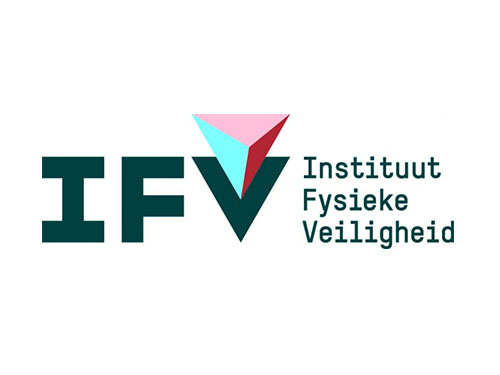
iNowIT
iNowIT initiative (The Netherlands) is an innovation platform for and run by the Dutch safety regions in the field on information management. This initiative is investing efforts related to standardisation aspects for a more harmonised way of deriving common data specifications and approaches towards a higher availability of data relevant to Crisis Management field. Initial discussions on the definition of concrete synergies between the iNowIT initiative and DRIVER+ have taken place during the Kick-off Meeting and some areas of cooperation have been identified: Standardisation related to interoperability and availability of data relevant for Crisis Management; Pool of experts on information management with knowledge and expertise potentially relevant to the DRIVER+ trials; Bridging the gaps between practitioners and researchers/technologist and enable the engagement of practitioners.
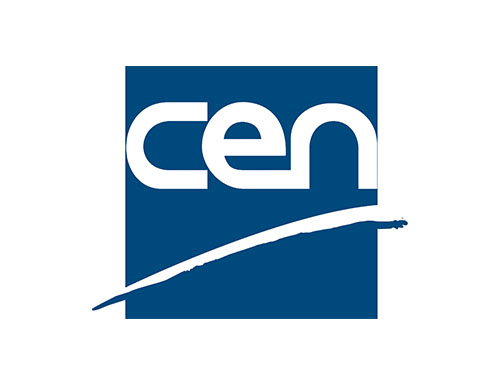
CEN
The Technical Committee CEN/TC 391 (Belgium) on Societal and Citizen Security is elaborating a family of European standards in the Societal and Citizen Security sector including aspects of prevention, response, mitigation, continuity and recovery before, during and after a destabilising or disruptive event. This initiative and DRIVER+ should collaborate in the definition of current and future standard development in the area of Crisis Management.
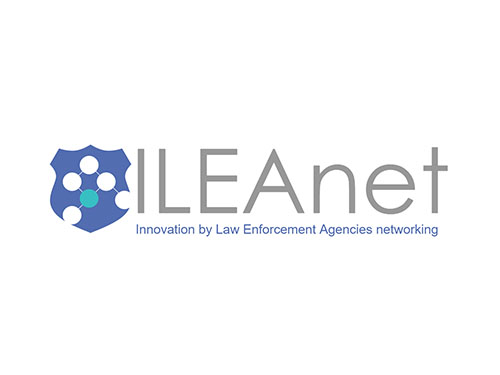
iLEAnet
The iLEAnet project (EU funded project) is a Pan-European practitioner network in the law enforcement domain. It aims at fostering discussions between law enforcement practitioners nationally and in their own languages about problems they have to face in daily work and how to solve them. These discussions and the conclusions on best practices and lessons learnt will then be mirrored on EU level via dedicated National Contact Points, forming the fundament of a community. This project and DRIVER+ should collaborate to identify common challenges, solution process and information on solutions.
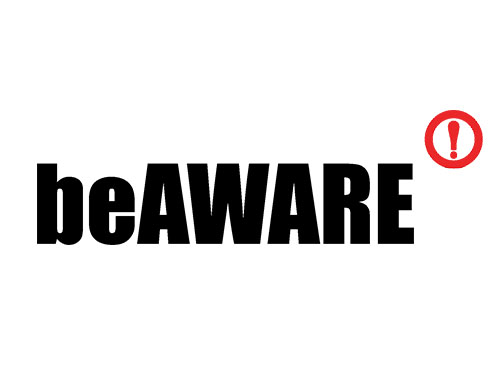
beaware
beAWARE (EU funded project) aims to better identify extreme weather induced disasters and to provide an improved decision support to manage them better in order to provide a more reliable warning system also for the broader public.
The following areas of cooperation have been identified between DRIVER+ and beAWARE: a focus on Crisis Management related to extreme weather events; the testing of solutions and the development of policy recommendations.
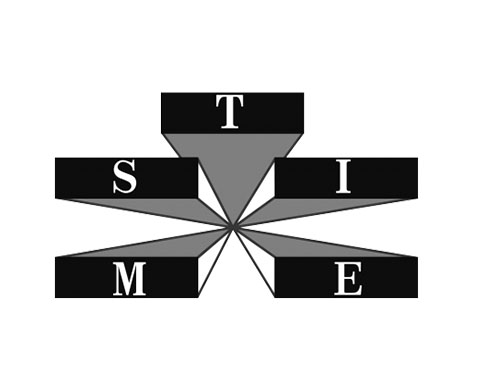
TIEMS
TIEMS (Belgium) is an international NGO working as a global forum for education, training and certification in emergency and disaster management. TIEMS activities comprise international conferences, workshops and exhibitions, research and technology development projects, task force groups of experts from TIEMS international group of experts, and TIEMS academy providing international education, training and certification program. TIEMS and DRIVER+ could work together to thematically linking he communities and enhancing communication between its members as well as linking educational aspects of the DRIVER+ Test-bed with TIEMS Centres of Excellence on education and respective certification.
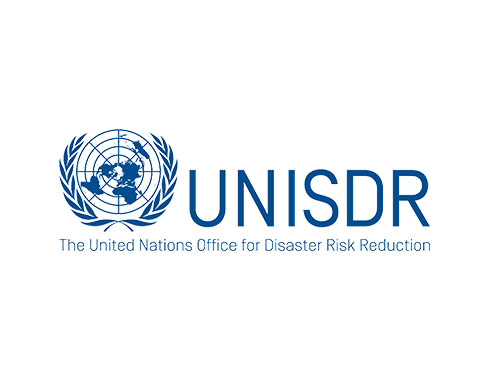
UNISDR
The United Nation Office for Disaster Risk Reduction (UNISDR) serve as the focal point in the United Nations system for the coordination of disaster reduction and to ensure synergies among the disaster reduction activities of the United Nations system and regional organizations and activities in socio-economic and humanitarian fields. DRIVER+ and the UNISDER could share efforts with respect to knowledge collection and sharing and DRIVER+ could support the SENDAI Framework for Disaster Risk Reduction 2015-2030 implementation on national level.
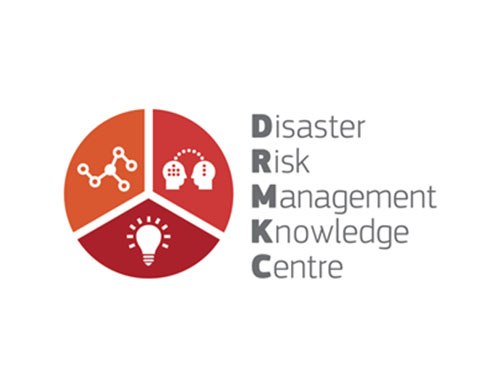
DISASTER RISK MANAGEMENT KNOWLEDGE CENTRE
The Disaster Risk Management Knowledge Centre (DRMKC) is endorsed and supported by the European Commission and operated by the Joint Research Centre (JRC). It aims at providing a bridge between science and policy through common forums and joint activities. Initial discussions on the definition of concrete synergies between the DRMKC and DRIVER+ have taken place during the Kick-off Meeting. They first agreed to explore jointly options to integrate the DRMKC’s Project Explorer and the DRIVER+’s Online Community Platform, which will serve as a common online tool for community building and as a vehicle to facilitate exchanges and cooperation between its members. Furthermore, DRIVER+ will seek to involve both the DRMKC and the Emergency Response Cooperation Centre (ERCC) representatives in the preparation of the DRIVER+ Trials and the Final Demonstration. Additionally, these organisations will be invited for the policy-research dialogues.
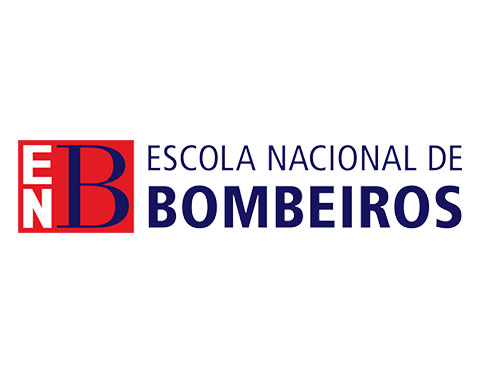
ESCOLA NACIONAL DE BOMBEIROS
The Escola Nacional de Bombeiros (ENB) (Portugal), is a school training 22.000 firefighters in Portugal per year and covering a range of training and other activities relevant for firefighting. The ENB and DRIVER+ will exchange on training approaches, share experience and build a knowledge base by facilitating a community. The ENB will be involved in the DRIVER+ trials and will contribute to the Portfolio of Solutions.
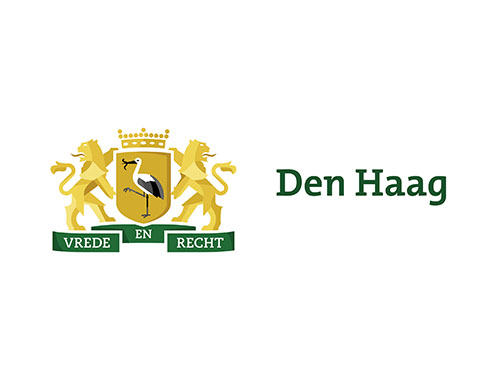
the hague city
One of the initiative of the City of the Hague (The Netherlands) is the 100 resilient cities initiatives by the Rockfeller foundation. This initiative aims at the identification of lessons learnt and the exchange of best practices as well as reaching out and involving citizens in the development of resilient strategies. DRIVER+ will collaborate with the City of The Hague in these following areas: citizens involvement, development of a sustainable strategy and elaboration of the Portfolio of Solutions.
Get In Touch
